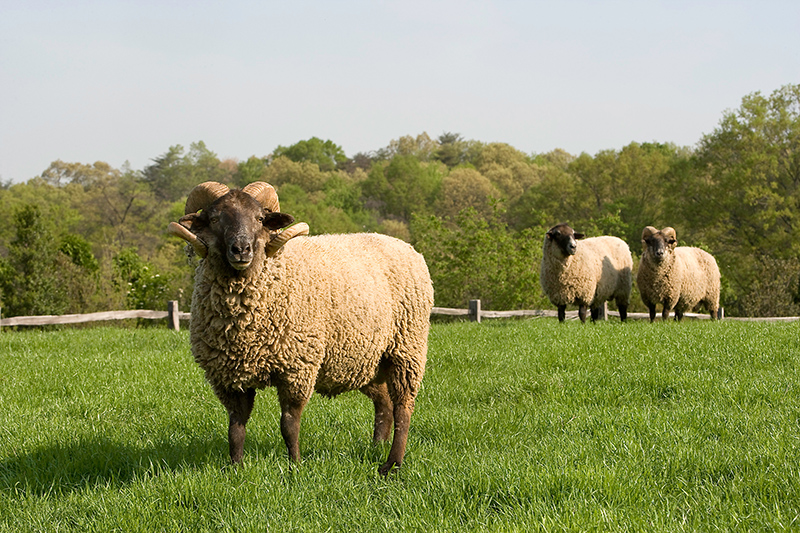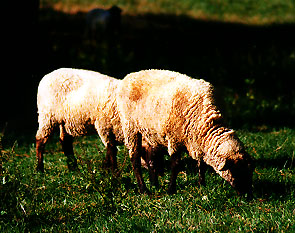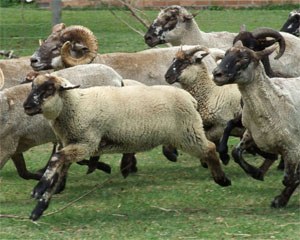Hog Island Sheep
About 200 years ago a flock of sheep was established on Hog Island, one of Virginia's barrier islands located off its Eastern Shore. The sheep were already native to the area and are believed to have had a substantial amount of Merino blood in them. There were occasional subsequent introductions to the population, the last being in 1953, when a Hampshire ram was taken to the island.
In 1974, the island was sold to The Nature Conservancy, which decided to remove all the sheep and cattle. Gunston Hall Plantation, in Fairfax County, Virginia, eventually became the owner of the greater number of these sheep, and exhibits them as part of its replication of 18th century plantation life.
Hog Island sheep are fairly light animals, with mature ewes weighing about 90 pounds and rams 125 pounds. Most are white, although 10% are black in color. Lambs may be born with spots which disappear as they mature. Both ewes and rams can be horned. The sheep produce a medium wool of 3.5-5 pounds in weight.
Hog Island sheep evolved and survived for over 200 years in an extremely harsh environment on a limited diet and no medical attention. Although studies conducted since their removal from the island indicate that they are not immune to parasites, they are nevertheless a very hardy breed.
Status: CRITICAL
For more information:
Gunston Hall Plantation, Lorton, VA 22079
Hog Island Sheep Registry, c/o ALBC, PO Box 477, Pittsboro, NC 27312
Phone: (919) 542-5704
References
The Livestock Conservancy PO Box 477, 33 Hillsboro St, Pittsboro, NC 27312



